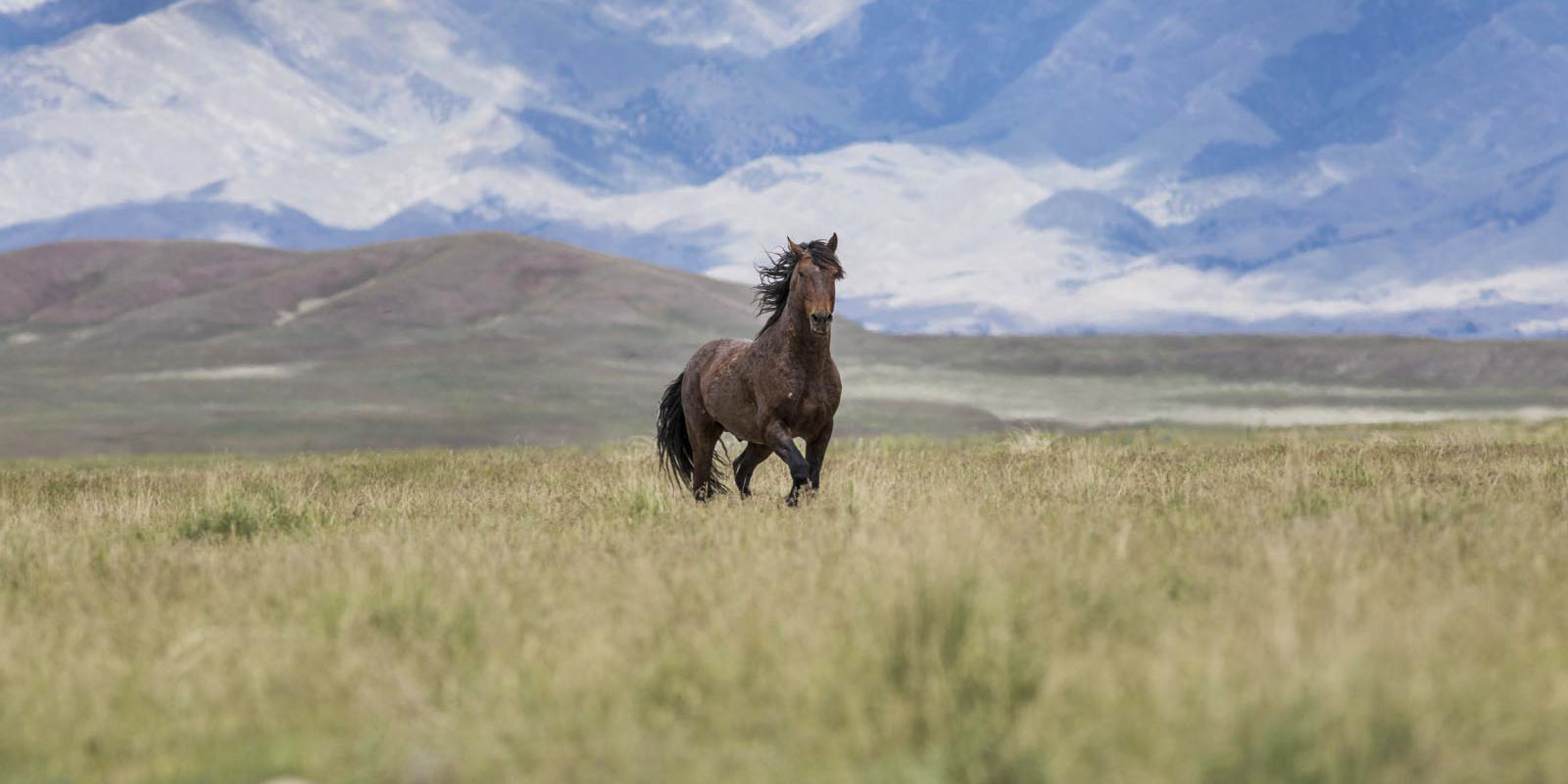The BLM’s big role in everything from grazing to mining to energy production means state politicians of all stripes have a stake in understanding and influencing the agency on behalf of their constituents.
In general, Republican lawmakers tend to press the agency for a more lenient approach toward mining and grazing while Democrats tend to be more interested in natural resource conservation and renewable energy.
The questions lawmakers lobbed at Ruhs provided a glimpse into public land issues within the state. In many instances when Ruhs didn’t have concrete answers he pledged to respond later to the lawmakers.
Assemblyman Jim Wheeler, R-Gardnerville, asked Ruhs whether the BLM had plans to use public-private partnership programs to control wild horse populations in places like the Virginia Range near Reno.
Partnerships that administer contraceptives to the horses on the range are controversial among wild horse advocates who are divided over the practice. Ranchers and others who see the horses as competition for livestock tend to favor population control.
“What you call wild horses I call feral and stray,” Wheeler said. “The overgrazing going on with these horses obviously is a problem.”
According to news reports the BLM pulled the plug on a public-private partnership in Nevada in 2016. But Ruhs said there’s another program that seems to be getting results on a small scale in southern Oregon and there’s a chance it could be used in Nevada.
“We have had conversations to see if we can’t mirror what they’re doing there,” Ruhs said.
Assemblywoman Leslie Cohen, D-Henderson, asked Ruhs if the Nevada BLM had any plans to partner with managers of the highly publicized Bear’s Ears Monument in Utah when marketing the appeal of the recently designated Gold Butte Monument in Southern Nevada.
She also asked about the status of plant restoration in Gold Butte, an area where rancher and anti-government protester Cliven Bundy, who is incarcerated and awaiting trial for his role in an armed standoff with BLM agents near Bunkerville in 2014, has been blamed for damaging the land. Bundy’s refusal to pay grazing fees was a major issue underlying the standoff.
Ruhs said he didn’t know the status of range restoration.
“That is kind of down in the weeds for me,” he said.
Sen. Pete Goicoechea, R-Eureka, asked Ruhs how much of the $3.5 billion in land sales under the Southern Nevada Public Lands Management Act goes to the U.S. Treasury.
Ruhs said none of the money goes to the treasury. He said it’s managed through the Department of the Interior on land and resource projects in the state.
“None of that money goes to the treasury, it stays in Nevada,” he said.
Goicoechea also asked about the BLM’s fire suppression budget in Nevada. Range fires are the subject of frequent complaint in rural Nevada.
Ruhs said he didn’t know the budget figure but after the meeting an aide said in 2016 there were 348 fires, with 260,697 acres burned and $23,255,762 spent on suppression.
Assemblyman John Ellison, R-Elko, pressed for answers on the 60 wilderness study areas Ruhs said cover about 2.5 million acres in Nevada.
Wilderness study areas are places that are being evaluated to become a federally designated wilderness area, one of the most stringent conservation designations available for public land.
While under consideration they’re typically managed with wilderness restrictions. Rural lawmakers say they get frustrated by instances in which the “study area” designation remains in place for decades even when there is evidence the land doesn’t have characteristics worthy of the wilderness label.
“I don’t know how long they can be studied, we need to get these things off this list,” Ellison said.
Ruhs told Ellison study area decisions don’t come quickly.
“It is not something I have dealt with since I have been in Nevada,” Ruhs said.
After the hearing he said decisions on whether to designate a study area as wilderness or release back to its prior designation tend to come from Congress through legislation dealing with specific parcels.
“I’ve never seen it happen outside of a land act,” he said.
None of the lawmakers from either major party asked Ruhs about proposals to shift control of federal land to states or sell it to private interests.


